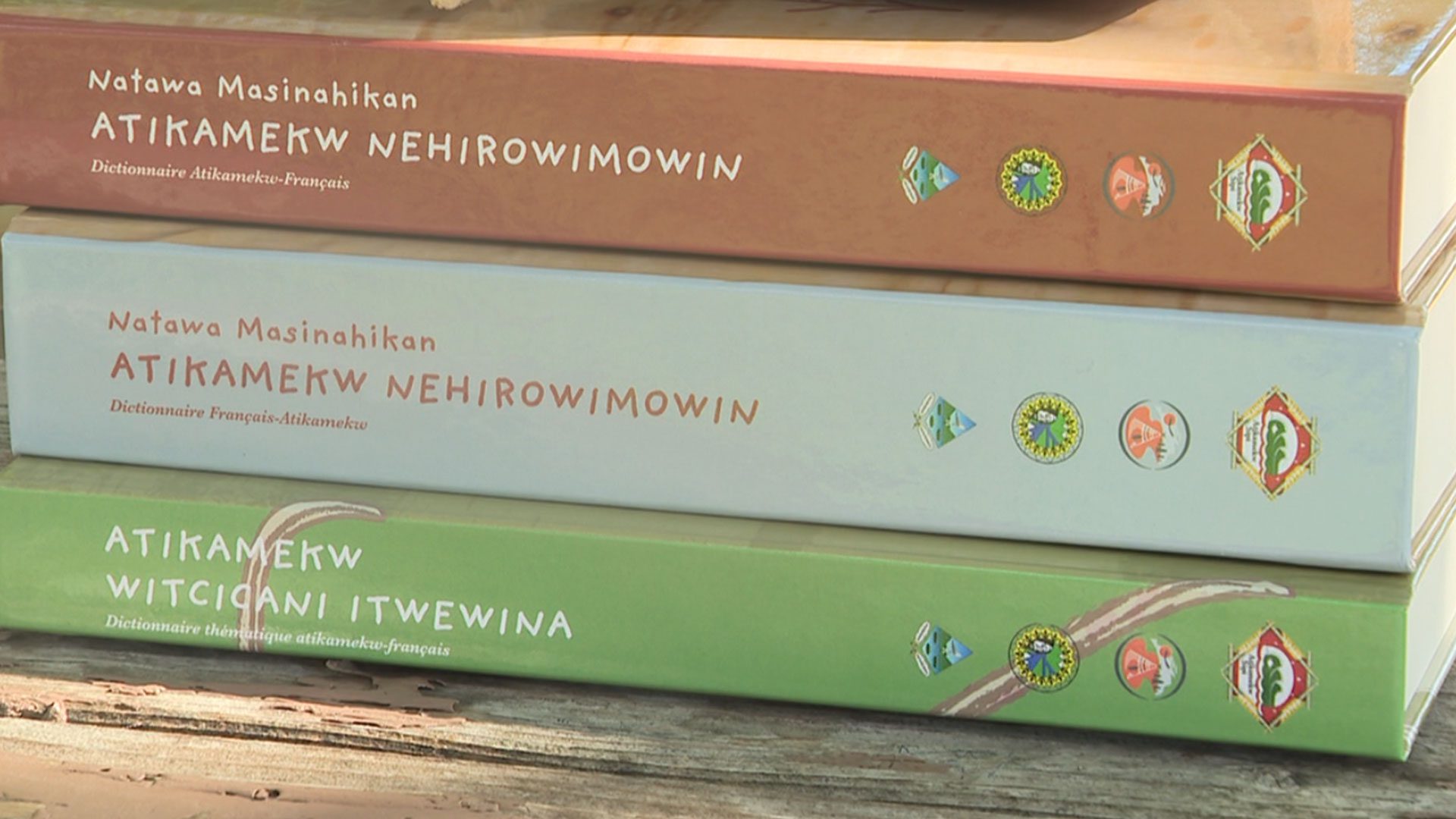The Atikamekw Nation has been involved in language conservation projects for about a decade now, and their efforts seem to be paying off.
New data from Statistics Canada show that Atikamekw is the only language to gain more speakers in Quebec, between 2016 and 2021.
In June, the Council for the Atikamekw Nation, in collaboration with Carleton University in Ottawa, launched an Atikamekw-French thematic dictionary, the first of its kind.
Nicole Petiquay, the language coordinator at the Council, explained that the new dictionary contains more than 220 themes and sub-themes focused on traditional knowledge.
“It’s about passing on the richness of the Atikamekw language. What’s more, the Atikamekw language is one of the most widely spoken in Canada. But like all languages, it’s still very fragile,” Petiquay said.
This is the second dictionary produced by the nation. In 2021, they released an Atikamekw-French. Another first.
Marie-Odile Junker, a linguistics professor from Carleton University participated in both projects and said that Patiquay first contacted her in 2013 with the idea of enshrining the language through a dictionary.
“In the time of climate change, I think humanity is really looking for a new way to envision their place in the world and nature as a species,” said Junker. “And languages like Atikamekw have some interesting pointers, indications on how to do that.”
Money for the projects came from the Social Science and Humanities Research Council, a federal program that promotes and supports research and training in the humanities and social science, according to Junker.
“There is a lot of richness and mandatory richness indicated in the lexicon about, I would say, the place of human in nature, not outside,” the professor added.

The 2021 volume contains over 13,000 words and has been a hit with both students and teachers from the communities of Manawa, Opitciwan, and Wemotaci, where Petiquay is from.
“When we visited the communities to promote the language, you could see in their eyes that they were eager to learn,” Petiquay said. “I know one of the teachers who said to me ‘I work a lot with this, all the questions I’ve been asking myself are there.'”
The language coordinator said that both dictionaries required extensive consultation with elders. However, the work was complicated by the pandemic.
“Véronique Chachai, our colleague, was surrounded by elders during the process in Obedjiwan.
“It was through interviews that she really got the elders involved in verifying and validating the recordings,” Petiquay said.
She also emphasized the sense of belonging the dictionaries have given the communities.
“Our language is very precious and very rich. We need to do something to pass it on to our young people. Finally, we have something. We have a tool that we can hold in our hands.”
According to Junker, the Atikamekw language is one of the few Indigenous languages where the transmission rate to children is 95 per cent or higher.
“Atikamekw is still very strong.”









